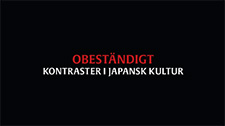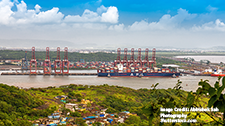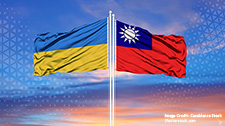Asia Program

The Asia Program – alongside the Silk Road Studies Program – forms a core part of the Institute for Security and Development Policy (ISDP). It encompasses the Stockholm Center for South Asian and Indo-Pacific Affairs, the Stockholm China Center, the Stockholm Korea Center, and the Stockholm Taiwan Center.
The Program conducts research designed to guide and inform about the current issues of various conflicts, complex security, and development challenges in the Asian region focusing on Northeast Asia, Southeast Asia, and South Asia. As such, it implements policy-oriented and practical research. The main objectives are not only to be a bridge between academia and policy but also to provide strategic insights and policy recommendations to decision-makers in governments, international institutions, and the private sector through five main channels: Impartial research; publications and newsletters; workshops and conferences; teaching and training; and formal and informal discussions.
Its research activities cover such areas as conflict prevention and crisis management, economic development, regional cooperation, legal development, traditional and non-traditional security, social and cultural changes, domestic development, and foreign policy in the region.
The Asia Program has a well-established and formalized cooperation with leading research and/or policy institutes in Asia. These collaborations do not only contribute to a more dynamic research environment, but they also facilitate in distributing our research in the region.
It is led by Dr. Niklas Swanström (ISDP Director).
Origin
The Asia Program was established in July 2007. With the initiation of the ISDP, the Asia Program was created to cover geographic research areas focusing on Northeast Asia, Southeast Asia, and South Asia as a key pillar of ISDP’s research.
The ambition of this Program is to examine how Asia and its sub-regional blocs interrelate in the fields of security, conflict, and development and to highlight the strategic significance of the greater Asian region, the security interdependence that all states share, and how regional and bilateral cooperation are the only ways to promote a more peaceful continent.
Publications
Through its Asia Program, the ISDP publishes the Asia Paper Series as well as books and monographs. In addition to these publications, our researchers also produce a wide range of articles, policy briefs, and reports.
Events
The Asia Program regularly invites scholars and other distinguished experts to speak at our ISDP Forums. The forums usually take the form of a lecture or presentation with the intent to update the research and policy communities in Stockholm about current issues in Asia. The invited speakers come from a range of different organizations and include scholars, diplomats, policymakers, and journalists. The ISDP Forums aim to encourage public discussion and the sharing of ideas and knowledge.
In addition to these forums, the Asia Program also arranges conferences, seminars, and workshops to explore and discuss contemporary regional issues in a more intimate setting.
Related News
Related Publications
-
Obeständigt – Kontraster i japansk kultur
In Japanese culture, contrasts have always been a key factor. This culture has fascinated the outside world for hundreds, if not thousands of years. But Japan is a country largely […]
-
Jagannath Panda: “India’s INSTC Commitment Is Not Reliant on Western Endorsement”
Interview conducted by Ilya Roubanis, Caucasus Watch The International North-South Transport Corridor (INSTC) is a 7,200km mostly overland network stretching from India to Russia, via Azerbaijan and Iran, branching […]
-
The Lithuanian Gambit
There is a great deal of conjecture and analysis at present telling us there is emerging a Sino-Russian alliance. If it is so, and it looks to me like it […]
-
Not Drawing a Parallel. Ukraine and Taiwan: An Indian Perspective
Russia’s war against Ukraine has not only had economic, diplomatic, and geopolitical repercussions, but also exaggerated the fear of accelerated conflicts in the Indo-Pacific, a region with several unresolved conflicts […]
-
Navigating Uncertainty: How Multinationals Can Hedge Against Rising Tensions in the Taiwan Straits
When geopolitical tensions in critical regions can reshape the landscape of global trade overnight, multinationals are finding it increasingly necessary to adopt sophisticated risk management strategies. The Taiwan Straits, a […]




